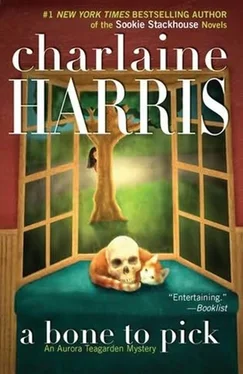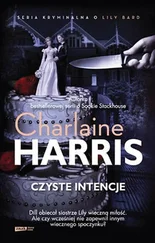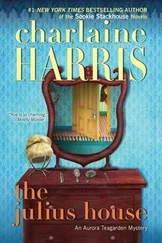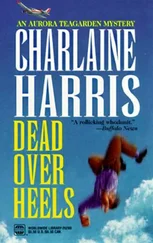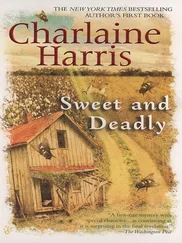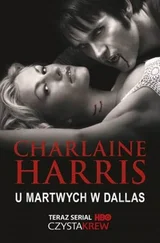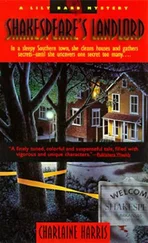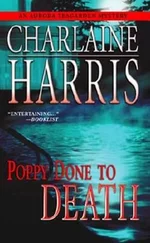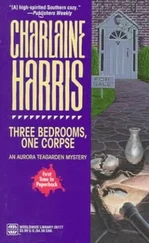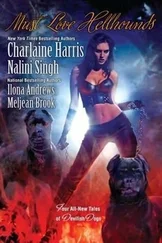Whatever was in the house was my problem, Bubba Sewell had said.
Taking a deep breath, I raised the lid and peered into the window seat. The sun streamed down into the seat, bathing its contents with a gentle morning glow. There was a rather yellow pillowcase inside, a pillowcase with something round in it.
I reached in and pulled at the corner of the pillowcase, gingerly working it back and forth, trying not to disturb its contents. But finally I had to pull it off altogether, and the thing that had been in the pillowcase rolled onto its side.
A skull grinned up at me.
“Oh my God,” I said, slamming the lid down and sitting on the seat, covering my face with both trembling hands. The next minute I was in frantic action, lowering those blinds and shutting them, checking to make sure the front door was locked, finding the light switch, and flipping on the overhead light in the suddenly darkened room.
I opened the window seat again, hoping its contents had miraculously changed.
The skull still lay there with its slack-jawed grin.
Then the doorbell rang.
I jumped and squeaked. For a moment I stood indecisively. Then I tossed the tools into the seat with the thing, shut the lid, and yanked the loose carpet back up. It wouldn’t settle back into place very well, having been removed so inexpertly, but I did the best I could and then heaped the fancy pillows around the edges to conceal the damage. But the carpet still sagged a little. I pushed it into place, weighted it down with my purse. It still pouched. I grabbed some books from the shelves and stacked them on the window seat, too. Much better. The carpet stayed in place. The doorbell rang again. I stood for a moment composing my face.
Carey Osland, minus the dachshund, smiled at me in a friendly way when I finally opened the door. Her dark chestnut hair was lightly threaded with gray, but her round, pretty face was unlined. She was wearing a dress that was one step up from a bathrobe, and scuffed loafers.
“Hi, neighbor,” she said cheerfully. “Aurora Teagarden, isn’t it?”
“Yes,” I said, making a huge effort to sound casual and calm.
“I’m Carey Osland, I live in the house with the roses, on the corner,” and she pointed.
“I remember meeting you before, Carey, at a bridal shower, I think.”
“That’s right-a long time ago. Whose was it?”
“Come in, come on in…Wasn’t it Amina’s shower, after she eloped?”
“Well, it must have been, ‘cause that was when I was working at her mother’s dress shop, that’s why I got invited. I work at Marcus Hatfield now.”
Marcus Hatfield was the Lord & Taylor of Lawrenceton.
“That’s why I’m such a slob now,” Carey went on smilingly. “I get so tired of being dressed up.”
“Your nails look great,” I said admiringly. I am always impressed by someone who can wear long nails and keep them polished. I was also trying very hard not to think about the window seat, not to even glance in that direction. I had waved Carey to the couch so she’d have her back partially to it when she half-turned to talk to me as I sat in the armchair.
“Oh, honey, they’re not real,” Carey said warmly. “I never could keep my nails from chipping and getting broken… So, you and Jane must have been good friends?”
The unexpected change of subject and Carey’s very understandable curiosity took me by surprise.
My neighbors were definitely not of the big city impersonal variety.
“She left me the house,” I stated, figuring that settled that.
And it did. Carey couldn’t think of a single way to get around that one to inquire as to our exact relationship.
I was beginning to wonder about our relationship, myself. Considering the little problem Jane had left me to deal with.
“So, do you plan on living here?” Carey had rallied and was counterattacking with even more directness.
“I don’t know.” And I didn’t add or explain. I liked Carey Osland, but I needed to be by myself with the thing in the window seat.
“Well”-Carey took a deep breath and released it-“I guess I’d better be getting ready for work.”
“Thanks for coming by,” I said as warmly as I could. “I’m sure I’ll be seeing you again when I have things more settled here.”
“Like I said, I’m right next door, so if you need me, come on over. My little girl is away at summer camp till this weekend, so I’m all on my own.”
“Thanks so much, I may be taking you up on that,” I said, trying to beam goodwill and neighborliness enough to soften the fact that I did not want a prolonged conversation and I wanted her gone, things I was afraid I’d made offensively obvious.
My sigh of relief was so loud after I’d shut and locked the door behind her that I hoped she wouldn’t hear it.
I sank down into the chair again and covered my face with my hands, preparing to think.
Sweet, fragile, silver-haired Jane Engle, school librarian and churchgoer, had murdered someone and put the victim’s skull in her window seat. Then she’d had the window seat carpeted over so no one would think to look there for anything. The carpet was in excellent condition, but not new. Jane had lived in that house with a skull in her living room for some years.
That alone would take some hard getting used to.
I should call the police. My hand actually picked up the receiver before I remembered that the phone was disconnected and that I owed Jane Engle. I owed her big-time.
Jane had left me the house and the money and the skull.
I could not call the police and expose Jane to the world as a murderess. She had counted on that.
Drawn irresistibly, I went to the window seat and opened it again.
“Who the hell are you?” I asked the skull. With considerable squeamishness, I lifted it out with both hands. It wasn’t white like bones looked in the movies, but brownish. I didn’t know if it was a man’s or a woman’s skull, but the cause of death seemed apparent; there was a hole in the back of the skull, a hole with jagged edges.
How on earth had elderly Jane managed to deliver such a blow? Who could this be? Perhaps a visitor had fallen and bashed the back of his head on something, and Jane had been afraid she’d be accused of killing the person? That was a familiar and almost comforting plot to a regular mystery reader. Then I thought in a muddled way of Arsenic and Old Lace. Perhaps this was a homeless person, or a solitary old man with no family? But Lawrenceton was not large enough for a missing person to go unnoticed, I thought. At least I couldn’t recall such a case for years.
Not since Carey Osland’s husband had left to pick up diapers and had never returned.
I almost dropped the skull. Oh my Lord! Was this Mike Osland? I put the skull down on Jane’s coffee table carefully, as if I might hurt it if I wasn’t gentle. And what would I do with it now? I couldn’t put it back in the window seat, now that I’d loosened the carpet and made the place conspicuous, and there was no way I could get the carpet to look as smooth as it had been. Maybe now that the house had been burgled, I could hide the skull in one of the places the searcher had already looked?
That raised a whole new slew of questions. Was this skull the thing the searcher had been looking for? If Jane had killed someone, how did anyone else know about it? Why come looking now? Why not just go to the police and say, “Jane Engle has a skull in her house somewhere, I’m certain.” No matter how crazy they’d sound, that was what most people would do. Why had this person done otherwise?
This added up to more questions than I answered at the library in a month. Plus, those questions were a lot easier to answer. “Can you recommend a good mystery without any, you know, sex, for my mother?” was a lot easier to answer than “Whose skull is sitting on my coffee table?”
Читать дальше
